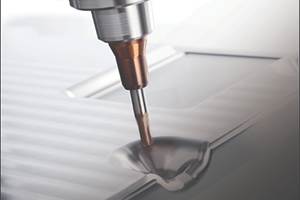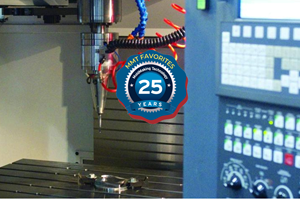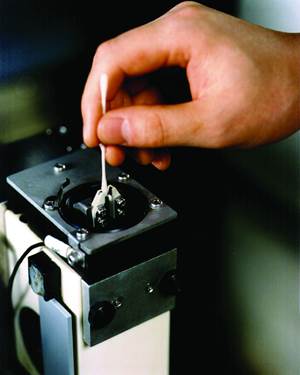How to Choose a Machining Service Provider
Rather than drive your business into the ground by trying to purchase extra equipment, get help and outsource to a shop that specializes in each specific machining method.
Drilling. Boring. Wire EDM. Sinker EDM. Gun drilling. Milling. Sawing. Different materials require different machining methods - and there are a number of them out there. Rather than drive your business into the ground by trying to purchase all of this equipment, a savvy moldmaker knows when it's time to get help and outsource to a shop that specializes in each specific machining method.
According to Mike Reilly of Advance Tool, Inc. (Blaine, MN), a custom injection mold builder for the plastic and die cast industries, farming out machining work also will extend a moldmaker's capacity. "There aren't a lot of shops that have the machinery or capacity to do some of the complex stuff," Reilly explains. "So they farm out the work that they do not have the equipment for. Or, for example, if they specialize in core or cavity work, they send out the simpler machining work."
Additionally, Reilly points out that if the moldmaker receives a package of molds to build and some are more complex, it pays to outsource mold base and plate work - thus getting the job done faster and having the ability to take on more jobs at once.
Machining Madness
Before a moldmaker can decide upon a machining service provider, he needs to decide which method is appropriate for each job. Then he needs to find a provider that does that work as his core business, Reilly explains. "You can go through the AMBA and trade magazines, but a lot of it is word-of-mouth," he comments. "Ours is a small industry and people move around a lot. It's important to make connections and keep in contact with those connections. A lot of people like to stay local, especially when dealing with vendors. It's nice to check around your neighborhood first, or the next town over."
When choosing a machining service provider, there are three areas to look at, notes Reilly: time, quality and dollars. "In today's world, everything is going to market faster and the only thing the customer cares about is getting good parts when he needs them," he states. "Delivery and dollars are very important. The service provider also must be reliable and have all of the right tools. "Make sure that you tour the facility, see what type of business they are in and what type of work they do," Reilly continues. "Most people are pretty good at telling you what they can and can't do, but you should see for yourself so you don't get stuck."
After the moldmaker has selected its machining service provider, Reilly advises to break them in slowly. "Don't give them anything too important to you - give them something that you can build over or somehow fix if the outsourcer fails," he says, "until you are able to build a relationship with them and really trust them. The first job is the icebreaker to see what the service provider can really do, and if they do what they say.
"It takes two or three jobs to get comfortable," Reilly continues. "You need to get to know the players and what their game is and actually forge the relationships so the trust can develop."
He urges the shop foreman or shop supervisor to take care of all of the machining outsourcing so "your top guys are doing what they do best.
Additionally, the person in charge should visit with the service provider on a weekly basis, and toward the end of the job, on a daily basis - depending on how the job is proceeding. "It's all about keeping your customers," Reilly says. "We all build relationships with our customers, and if you deliver late on a job or a poor quality mold, it's a bad mark against you. It's hard to make that up. We always say in this industry, 'You're only as good as your last bad job.'"
The outsourcer should provide weekly progress reports, Reilly says, and once the moldmaker is comfortable with the service provider, updates can be given over the phone.
The bottom line, according to Reilly, is to "make sure they do nice work and deliver on time."
Related Content
Revisiting Some Hot Runner Fundamentals
What exactly does a hot runner do? If you’ve been in the injection molding industry for any length of time, you might think the answer is obvious, but it is not.
Read MoreMoldmakers Deserve a Total Production Solution
Stability, spindle speed and software are essential consideration for your moldmaking machine tool.
Read MoreMachine Hammer Peening Automates Mold Polishing
A polishing automation solution eliminates hand work, accelerates milling operations and controls surface geometries.
Read MoreMaintaining a Wire EDM Machine
To achieve the ultimate capability and level of productivity from your wire EDM on a consistent, repeatable and reliable basis, regular maintenance is a required task.
Read MoreRead Next
How to Use Strategic Planning Tools, Data to Manage the Human Side of Business
Q&A with Marion Wells, MMT EAB member and founder of Human Asset Management.
Read MoreHow to Use Continuing Education to Remain Competitive in Moldmaking
Continued training helps moldmakers make tooling decisions and properly use the latest cutting tool to efficiently machine high-quality molds.
Read More


















